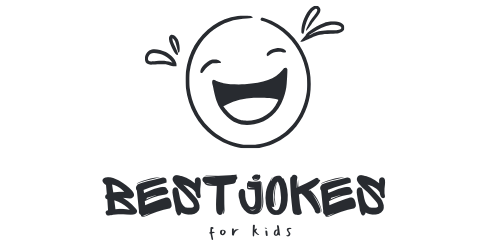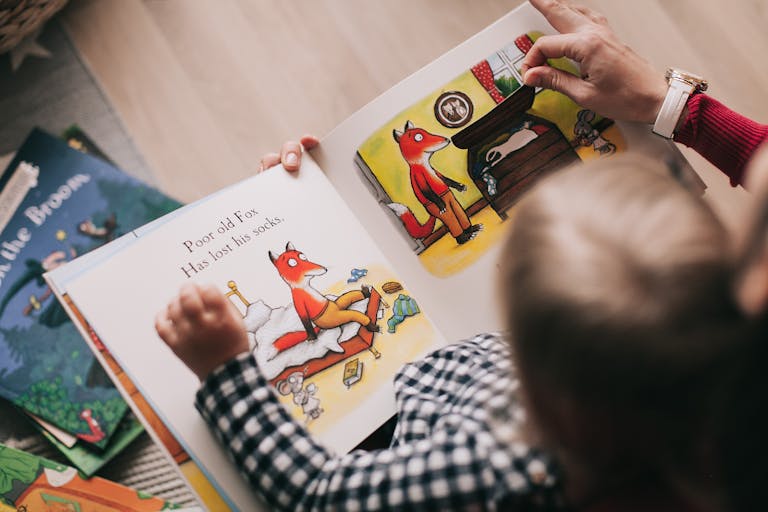Key Takeaways
- Reading joke books can significantly boost a child’s confidence and creativity.
- Humor helps children develop better social-emotional skills and emotional intelligence.
- Joke books improve vocabulary and language skills through exposure to wordplay.
- Laughter from joke books can reduce stress and build resilience in children.
- Engaging with humor encourages critical thinking and problem-solving abilities.
Joke Books as a Tool for Building Confidence and Creativity
Joke books are not just about getting a good laugh. They serve as a powerful tool for building confidence and fostering creativity in children. The magic of humor lies in its ability to break down barriers and open up new ways of thinking. When kids read joke books, they engage with language in a playful and imaginative way, which can enhance their cognitive abilities and emotional intelligence.
The Impact of Humor on Child Development
Humor is an essential component of child development. It helps children develop a sense of self, navigate social interactions, and understand complex concepts. Most importantly, humor provides a safe space for children to explore and express their emotions. This exploration is crucial for building emotional resilience and intelligence.
Consider the story of Sarah, a shy eight-year-old who struggled with making friends. Her teacher introduced her to a joke book, and Sarah began sharing jokes with her classmates. Over time, her confidence grew, and she became more socially engaged. Sarah’s story illustrates how humor can transform a child’s social experience.
- Humor enhances emotional intelligence by allowing children to express and manage their emotions.
- It encourages social interaction and helps children form bonds with their peers.
- Humor supports cognitive development by introducing complex language concepts in an accessible way.
How Joke Books Facilitate Learning and Growth
Joke books serve as an excellent resource for learning and growth. They present language in a format that is both entertaining and educational. Children are naturally drawn to humor, making joke books an effective tool for encouraging reluctant readers to engage with text. As they read, children develop a deeper understanding of language and its nuances.
When children read joke books, they are exposed to new vocabulary and language structures. They learn about puns, idioms, and other forms of wordplay that enhance their linguistic abilities. This exposure is vital for building a rich and diverse vocabulary. For more insights, consider reading why funny books are beneficial for kids.
Moreover, joke books encourage children to think critically and creatively. Understanding a joke requires more than just reading the words; it involves interpreting the meaning and appreciating the humor. This process helps children develop critical thinking skills and enhances their ability to solve problems. For more ideas, check out 10 fun ways to encourage your child to read more.
Boosting Confidence Through Humor
- Sharing jokes helps children develop social skills and build friendships.
- Mastering the art of joke-telling boosts self-esteem and confidence.
- Understanding and delivering jokes enhances communication skills.
Humor has a unique ability to boost confidence in children. When kids successfully tell a joke and make others laugh, they experience a sense of accomplishment and validation. This positive feedback loop encourages them to engage more with their peers and explore new social situations. For parents looking to further encourage their child’s reading habits, consider these top ways to make reading a daily habit.
Besides that, joke-telling helps children develop communication skills. Delivering a joke requires understanding timing, tone, and expression. These elements are crucial for effective communication and can boost a child’s confidence in their ability to convey ideas. For more insights, check out this article on why joke books belong in a classroom.
Telling Jokes and Social Interaction
Joke books are a great way to encourage social interaction among children. When kids share jokes, they engage in a collaborative activity that fosters connection and camaraderie. This shared experience can help children build friendships and develop a sense of belonging. For more ideas on fostering these connections, consider these ways to make reading a daily habit.
Mastery of Timing and Delivery
Delivering a joke successfully requires mastery of timing and delivery. Children learn to pay attention to their audience’s reactions and adjust their delivery accordingly. This skill is not only valuable for joke-telling but also for other forms of communication, as highlighted in ways to encourage your child to read more.
Improving Language Skills and Vocabulary
Joke books are a treasure trove of language learning opportunities. They introduce children to new words, phrases, and language structures in a fun and engaging way. This exposure is crucial for building a strong vocabulary and improving language skills. For more insights on the benefits of joke books, check out why joke books belong in a classroom.
Moreover, joke books often use wordplay, such as puns and idioms, which helps children develop a deeper understanding of language. Understanding these linguistic nuances enhances a child’s ability to comprehend and use language effectively. For more insights on the benefits of humor in children’s literature, check out why joke books belong in a classroom.
Exposure to Diverse Words and Phrases
Reading joke books exposes children to a wide range of words and phrases. This exposure helps them build a rich and diverse vocabulary, which is essential for effective communication. For more ideas on how to engage your child in reading, explore these fun reading activities for kids.
The Role of Wordplay in Language Development
- Wordplay introduces children to complex language concepts in an accessible way.
- It enhances vocabulary by exposing children to new words and phrases.
- Understanding wordplay improves comprehension and language skills.
Wordplay is a key component of joke books. It challenges children to think critically about language and its meanings. By engaging with wordplay, children develop a deeper understanding of language and improve their comprehension skills. For more ideas on fostering a love for reading, check out these fun ways to encourage your child to read more.
Therefore, joke books are not only a source of entertainment but also a valuable tool for language development. They provide children with the opportunity to explore language in a fun and engaging way, which enhances their linguistic abilities.
Encouraging Critical Thinking and Problem-Solving
Joke books are an excellent resource for encouraging critical thinking and problem-solving skills. Understanding a joke requires more than just reading the words; it involves interpreting the meaning and appreciating the humor. This process helps children develop critical thinking skills and enhances their ability to solve problems. For more ways to foster a love for reading, check out these fun ways to encourage your child to read more.
Understanding Humor’s Complexity
Humor isn’t just about getting a laugh; it’s a complex cognitive process that engages multiple parts of the brain. When children read joke books, they are not only entertained but also challenged to understand the layers of meaning behind each joke. This understanding requires recognizing context, identifying wordplay, and interpreting the punchline. As children navigate these complexities, they sharpen their cognitive abilities and enhance their problem-solving skills.
Jokes as a Gateway to Advanced Concepts
Jokes often rely on advanced language concepts such as irony, satire, and metaphor. By engaging with these elements, children learn to appreciate and understand more sophisticated forms of communication. For example, when a child reads a joke that plays on the double meaning of a word, they must understand both meanings to appreciate the humor fully. This process not only enhances language skills but also prepares them for more complex literary and academic pursuits. Discover how using humor can boost your child’s reading skills.
Building Resilience and Emotional Intelligence
Laughter is a powerful tool for building resilience and emotional intelligence in children. When kids read joke books, they experience joy and amusement, which can help them cope with stress and difficult emotions. By regularly engaging with humor, children learn to view challenges with a positive mindset, which is a crucial aspect of resilience. For more ideas on how to encourage reading, check out these fun reading activities for kids.
The Role of Laughter in Managing Stress
Laughter triggers the release of endorphins, the body’s natural feel-good chemicals. This process reduces stress and promotes a sense of well-being. When children laugh at a joke, they momentarily forget their worries and experience a sense of relief. This ability to find humor in challenging situations is a valuable coping mechanism that can support emotional health throughout their lives. To explore more about the benefits of humor for kids, check out why read funny books for kids.
“Laughter is the best medicine, and joke books provide a daily dose of it for children, helping them manage stress and build emotional resilience.” – Scholastic Parents Staff
Besides offering stress relief, joke books also encourage children to express their emotions. When kids laugh, they release pent-up feelings, which can lead to a greater understanding of their emotions and improved emotional intelligence.
Exploring Emotions Through Laughter
- Laughter helps children express and release emotions, leading to greater emotional awareness.
- Humor provides a safe space for exploring difficult emotions and situations.
- Engaging with humor regularly can improve a child’s emotional intelligence and resilience.
By reading joke books, children learn to navigate their emotions in a healthy and constructive way. Humor provides a safe space for them to explore and express their feelings, which is essential for emotional development.
For example, a child who feels anxious about an upcoming test might read a joke book to relax and distract themselves. This practice not only reduces stress but also helps the child approach the situation with a more positive and resilient mindset. For more ideas on how to encourage reading, check out these top 5 ways to make reading a daily habit for your kids.
Fostering Creativity and Imagination
Joke books are a catalyst for creativity and imagination in children. They encourage kids to think outside the box and explore new ideas. Humor often involves seeing things from a different perspective, which can inspire creative thinking and problem-solving.
When children engage with jokes, they learn to approach situations with an open mind and a sense of curiosity. This mindset is crucial for fostering creativity and innovation. For more ideas on how to encourage your child to read, check out these fun ways to encourage reading.
Moreover, joke books often present scenarios that are imaginative and whimsical, which can spark a child’s imagination and inspire them to create their own stories and ideas. For more ways to encourage reading, check out these fun ways to encourage your child to read more.
“Humor triggers our sense of wonder, which is the root of all learning.” – Jessica Wollman, Senior Vice President of Classroom & Library Publishing at Scholastic Education
Thinking Outside the Box with Humor
Humor encourages children to think outside the box and approach problems from different angles. This ability to see things from multiple perspectives is a key component of creativity and innovation. For more on how humor can enhance learning, check out using humor to boost your child’s reading skills.
For example, a joke that plays on a common phrase by altering its meaning encourages children to think creatively about language and its possibilities. This process not only enhances their linguistic abilities but also inspires them to explore new ideas and concepts. To further foster this creativity, consider making reading a daily habit for your kids.
Humor’s Influence on Inventiveness
Engaging with humor regularly can inspire children to become more inventive and imaginative. By exploring the playful and imaginative scenarios presented in joke books, children learn to approach problems with a sense of curiosity and creativity. For more ideas on how to encourage this, check out 10 fun ways to encourage your child to read more.
Therefore, joke books are not only a source of entertainment but also a valuable tool for fostering creativity and imagination in children. They provide a safe and playful space for children to explore new ideas and develop their creative potential. For more insights, check out why joke books belong in a classroom.
Enhancing Social Bonds and Friendships
Joke books can play a significant role in enhancing social bonds and friendships among children. Sharing jokes is a social activity that fosters connection and camaraderie. When children laugh together, they create positive associations and strengthen their relationships. Discover how humor can boost your child’s reading skills and further enhance these social interactions.
Moreover, humor provides a common ground for children to connect with their peers. It encourages them to engage in social interactions and build friendships based on shared experiences and laughter. For more insights, explore how using humor can boost your child’s reading skills.
Jokes as a Social Connector
Jokes serve as a social connector, bringing children together through shared laughter and enjoyment. When kids share jokes, they engage in a collaborative activity that fosters connection and camaraderie. For parents looking to encourage this bonding through reading, consider these ways to make reading a daily habit for your kids.
This shared experience can help children build friendships and develop a sense of belonging. By engaging with humor, children learn to navigate social situations and build positive relationships with their peers. For more insights, consider exploring why joke books belong in a classroom.
Sharing Humor with Friends and Family
Sharing humor with friends and family creates a sense of togetherness and strengthens bonds. When children share jokes, they create positive memories and reinforce their relationships with loved ones. For those interested in nurturing this aspect of their child’s life, consider exploring using humor to boost your child’s reading skills.
“When humor is involved, the whole family enjoys reading more.” – Scholastic Kids & Family Reading Report
Therefore, joke books are not only a source of entertainment but also a valuable tool for enhancing social bonds and friendships. They provide a safe and playful space for children to connect with their peers and loved ones through shared laughter and enjoyment. For more ideas on how to encourage reading, check out these fun ways to encourage your child to read more.
Creating Positive Associations with Reading
- Humor makes reading enjoyable, encouraging reluctant readers to engage with text.
- Joke books provide a fun and accessible way to explore language and literature.
- Regular engagement with humor can foster a lifelong love of reading.
One of the greatest benefits of joke books is their ability to create positive associations with reading. When children find joy in reading, they are more likely to engage with books regularly. This engagement is crucial for developing strong reading skills and a lifelong love of literature.
Joke books present reading as an enjoyable and entertaining activity. They captivate children’s attention with humor and playfulness, making reading a fun and rewarding experience. This positive association encourages children to explore other types of literature and develop a love of reading that lasts a lifetime. For more insights on why joke books are beneficial, check out 5 reasons joke books belong in a classroom.
Moreover, joke books provide a safe and accessible entry point for reluctant readers. Children who may be hesitant to pick up a book are often drawn to the humor and simplicity of joke books. This engagement can build their confidence in reading and encourage them to explore more complex texts. For more on this topic, you can read about why joke books belong in a classroom.
Viewing Reading as an Enjoyable Activity
By presenting reading as an enjoyable activity, joke books inspire children to engage with text regularly. This engagement is crucial for developing strong reading skills and a lifelong love of literature. When children associate reading with fun and enjoyment, they are more likely to pick up a book and explore the world of literature. For tips on how to further encourage your child to read more, check out these 10 fun ways to encourage reading.
Building Lifelong Reading Habits Through Humor
Humor is a powerful motivator for building lifelong reading habits. When children find joy in reading joke books, they are more likely to seek out other forms of literature. This curiosity and enthusiasm for reading can lead to a lifelong love of books and learning.
Therefore, joke books are not only a source of entertainment but also a valuable tool for creating positive associations with reading. They provide a fun and accessible way for children to explore language and literature, fostering a love of reading that lasts a lifetime. For more ideas on how to make reading enjoyable, check out these fun reading activities for kids.
Conclusion: The Hidden Benefits of Joke Books
Joke books offer a myriad of hidden benefits that extend beyond simple entertainment. They play a crucial role in enhancing children’s cognitive, emotional, and social development. By engaging with humor, children build confidence, creativity, and resilience, all of which are essential for navigating the complexities of life. For more insights, check out this article on why joke books belong in a classroom.
Summary of Cognitive and Emotional Advantages
Joke books improve language skills, vocabulary, and comprehension through exposure to wordplay and diverse language structures. They also encourage critical thinking and problem-solving by challenging children to understand and appreciate humor’s complexities. For more ways to engage your child in reading, explore fun reading activities for kids.
Emotionally, humor provides a safe space for children to explore and express their feelings, building resilience and emotional intelligence. The laughter and joy derived from joke books can reduce stress and foster a positive mindset.
Joke Books as a Resource for Growth
Joke books are a valuable resource for children’s growth and development. They offer a playful and engaging way to explore language, build social connections, and foster creativity. By incorporating joke books into a child’s reading routine, parents and educators can support their cognitive, emotional, and social development.
Frequently Asked Questions (FAQ)
To further understand the benefits of joke books, let’s address some common questions about their impact on children’s development.
How do joke books help with language skills?
Joke books introduce children to new vocabulary, phrases, and language structures. They often include wordplay, such as puns and idioms, which enhance linguistic comprehension and vocabulary. By engaging with these elements, children develop a deeper understanding of language. Discover how using humor can boost your child’s reading skills.
Can humor improve a child’s problem-solving abilities?
Yes, humor encourages critical thinking and problem-solving. Understanding a joke requires interpreting context, recognizing wordplay, and appreciating the punchline. This process sharpens cognitive abilities and enhances problem-solving skills. For more on how humor can be beneficial, check out using humor to boost your child’s reading skills.
What is the connection between humor and emotional intelligence?
Humor helps children express and manage their emotions, building emotional intelligence. Laughter provides a safe space for exploring difficult feelings, and engaging with humor regularly can improve emotional awareness and resilience. For more ways to incorporate humor into reading, check out using humor to boost your child’s reading skills.
Besides, humor encourages social interaction and bonding, which are crucial for developing emotional intelligence. Learn more about using humor to boost your child’s reading skills.
- Humor helps children express and manage their emotions.
- Engaging with humor regularly can improve emotional awareness.
- Humor encourages social interaction and bonding.
By exploring humor, children learn to navigate their emotions in a healthy and constructive way, which is essential for emotional development. Discover how using humor can boost your child’s reading skills and further enhance their emotional growth.
Do joke books really encourage creative thinking?
Absolutely. Joke books inspire children to think outside the box and explore new ideas. Humor often involves seeing things from a different perspective, which encourages creative thinking and problem-solving. By engaging with imaginative scenarios, children develop their creativity and innovation. For more insights, check out how using humor can boost your child’s reading skills.
Therefore, joke books are not only a source of entertainment but also a valuable tool for fostering creativity and imagination in children. They provide a safe and playful space for children to explore new ideas and develop their creative potential.
In conclusion, joke books offer numerous benefits that support children’s cognitive, emotional, and social development. By incorporating humor into their reading routine, parents and educators can help children build confidence, creativity, and resilience, setting them up for success in life.







4 Comments